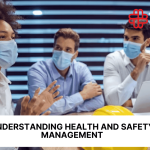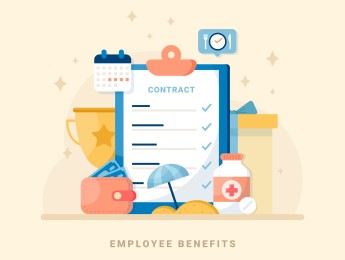For a healthcare organisation to work optimally, it is vital to offer regular maintenance of any facilities. Healthcare facilities are essential to the general functions of the building, ensuring accessibility to all patients and for healthcare professionals to carry out their duties without fear. If healthcare facilities were to fall into disarray, they would be incapable of functioning as expected, and healthcare providers would be unable to submit or receive any diagnostic tests to aid in their patient care.
One vital aspect of facilities management is risk management. All facilities within a healthcare organisation must comply with all legal regulations and standards that promote safe use practices. Furthermore, risk assessments must be conducted to identify any potential and probable risks, analyse the data, and implement preventative and corrective measures.
To aid in the safety of facilities, those responsible should also manage their finances and daily operations. Monitoring these factors will highlight any excessive resource use that may contribute to a reduction in productivity. By ensuring regular maintenance, adequate finances, and safe working conditions, all facilities should be able to function at maximum productivity.
Upon completion of this course, participants will be able to:
- Understand the vitality of facilities management within a healthcare organisation.
- Conduct risk and hazard assessments to identify all potential risks within the healthcare facility.
- Plan, design and review project plans for the construction, renovation, and maintenance of healthcare buildings.
- Manage all finances relating to the organisation’s facilities, including the contract management process and HR functions.
- Comply with all laws, regulations and standards surrounding facilities management.
- Minimise facilities down-time through regular upkeep and maintenance.
- Carefully manage the resource consumption of all facilities within the building.
This course is designed for anyone within healthcare who is responsible for managing healthcare facilities. It would be most beneficial for:
- Operations Managers
- Healthcare Facilities Managers
- Hospital Directors
- Risk Managers
- HSE Officers
- Compliance Officers
- Quality Assurance Directors
- Project Managers
This course uses a variety of adult learning styles to aid full understanding and comprehension. Participants will review case studies of established healthcare organisations to highlight the risk assessment process and how to accurately identify potential risks.
They will be given all the tools required to partake in the variety of arranged learning exercises and methods, some of which include presentations, demonstrations, and group activities. This combination of activities allows for the participants to fully develop an understanding of the taught content and demonstrate any practical skills.
Day 5 of each course is reserved for a Q&A session, which may occur off-site. For 10-day courses, this also applies to day 10
Section 1: Introduction to Healthcare Facilities Management
- Defining what facilities management is within a healthcare organisation.
- Identifying what facilities are included under the healthcare facilities management (HFM) umbrella.
- Exploring what internal and external factors can influence the stability and safety of different facilities.
- What routines and inspections must be conducted throughout the facilities – fire monitoring, emergency power, water management and more.
Section 2: Risk Management
- The vitality of managing facility-related risks within a healthcare environment.
- Conducting risk and hazard assessments to identify all probable risks, including potential disease outbreaks.
- Implementing a risk management plan detailing all preventative measures and potential corrective actions.
- Assessing all relevant laws and regulations to ensure the organisation’s facilities are up to standard.
Section 3: Maintenance and Operations
- Analysing risk data to identify where maintenance may be lacking.
- Setting a schedule for all facilities to receive regular routine maintenance while also minimising facility down-time.
- How to proceed during a crisis – investigating the crisis, identifying the cause, implementing corrective actions, reevaluating the crisis cause.
- Ensure all facilities work collaboratively wherever necessary and manage routine maintenance.
- Monitoring the use of resources to guarantee no facility waste.
Section 4: Finance Management
- The financial burden of managing healthcare facilities.
- Understanding the costs associated with the daily use and maintenance of individual facilities.
- Analysing financial documents to explore potential areas to reduce resources and reduce costs.
- Utilising consistent facilities maintenance as a or maintenance.
- Establishing multiple sources of income to guarantee the development of other store areas.
Section 5: Administration
- Maximising the potential of employees and teams through how they utilise healthcare facilities.
- Working collaboratively with healthcare professionals to gain a clear understanding of what occurred.
- Communicating with other departments to ensure all information is being relayed correctly.
- Ensuring optimal staffing levels to support maximum effective use of the facilities.
Upon successful completion of this training course, delegates will be awarded a Holistique Training Certificate of Completion. For those who attend and complete the online training course, a Holistique Training e-Certificate will be provided.
Holistique Training Certificates are accredited by the British Assessment Council (BAC) and The CPD Certification Service (CPD), and are certified under ISO 9001, ISO 21001, and ISO 29993 standards.
CPD credits for this course are granted by our Certificates and will be reflected on the Holistique Training Certificate of Completion. In accordance with the standards of The CPD Certification Service, one CPD credit is awarded per hour of course attendance. A maximum of 50 CPD credits can be claimed for any single course we currently offer.
- Course Code IND05-114
- Course Format Classroom, Online,
- Duration 5 days














